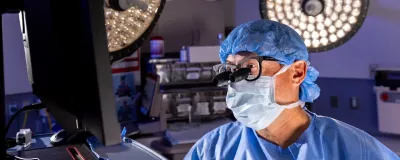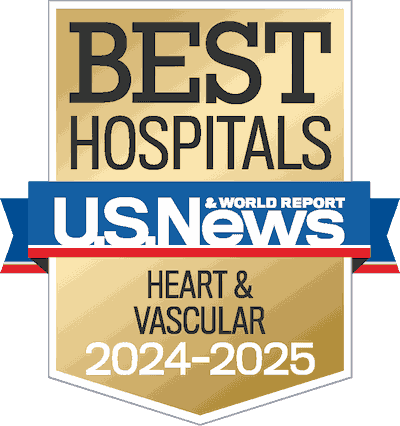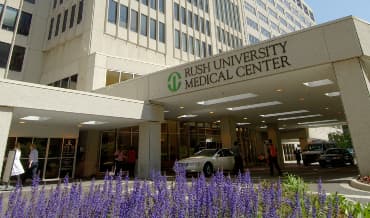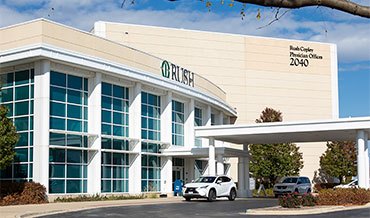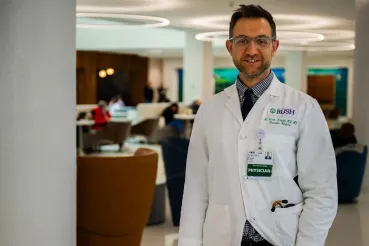Congenital heart diseases come from heart defects that people are born with. They can affect the structure and valves of the heart.
Most congenital heart diseases are found when patients are still children or at birth. Because care for these issues has improved over time, more children with heart defects grow to adulthood. That also means that many patients who grow up with these diseases often need more treatment later in life.
There are also cases where congenital heart diseases are not discovered until patients reach adulthood, especially if they are less severe.
Many congenital heart diseases are diagnosed using echocardiograms, often called echo for short, and electrocardiograms, or EKGs. Some cases might also need cardiac magnetic resonance imaging, or MRI.
Many congenital heart diseases are diagnosed using echocardiograms, often called echo for short, and electrocardiograms, or EKGs. Some cases might also need cardiac magnetic resonance imaging, or MRI.
Common Types and Symptoms of Congenital Heart Disease
Bicuspid aortic valve is the most common heart defect that is present at birth. It happens when the aortic valve’s flaps fuse, so it only has two flaps instead of the usual three. If untreated, it can cause complications, including heart failure.
Other common congenital heart defects can be holes in the walls of the heart chambers, called atrial septal defect or ventricular septal defect, depending on where they are.
Some of the symptoms and complications that can come from congenital heart disease include the following:
- Shortness of breath
- Feeling fatigued easily during physical activity
- Swelling in the legs
- Fluid buildup in the abdomen
- Chest pain
- Heart failure
- Syncope, or fainting
- Collapse
Rarely, these heart defects can lead to sudden cardiac arrest, which can be deadly. In these patients, sudden fainting or collapse may be the first time they’ve shown symptoms of their congenital heart disease.
The Rush Approach to Congenital Heart Disease Care
At Rush, our pediatric cardiologists and interventional cardiologists in Chicago and the surrounding area work with a team of heart and vascular care experts across many specialties. Together, they provide a range of care options for children and adults with congenital heart disease. Whenever possible, they can offer minimally invasive procedures as alternatives to open heart surgery.
For example, many congenital heart diseases can be treated with a small device placed via a catheter that runs through blood vessels in the groin rather than surgery. These procedures can often be performed quickly, usually within an hour, while the patient is under light anesthesia.
Atrial septal defect is a common congenital heart disease in adult patients. In about 90% of cases, these defects can be closed with minimally invasive atrial septal defect closure procedures. Patent foramen ovale, another common congenital heart condition in adults, can be treated in a similar, minimally invasive way.
Many patients who had corrective treatment for congenital heart conditions as children will need care later in life, like those who have had surgery for pulmonary valve problems or trilogy of Fallot.
These patients need close monitoring throughout their lives. Over time, their valves may leak and start to affect the heart, causing symptoms.
The heart and vascular team at Rush can offer minimally invasive reinterventions to repair and replace these valves via catheter, as well.
And if you do need open heart surgery, you’ll have access to a team of specialists from our cardiology and heart and vascular surgery programs, which consistently rank among the best in the nation.
Second Opinions for Congenital Heart Disease at Rush
A second opinion on a congenital heart disease diagnosis or care plan can help you learn more and make decisions about treatment with confidence. Rush offers second opinions for all patients with these conditions, including the following:
- Parents seeking pediatric care for their children
- Newly diagnosed adult patients
- Adult patients who require reintervention or ongoing care
Our interventional cardiologists work with specialists from all fields of heart and vascular care and have access to the latest diagnostic tools. Whenever possible, they can offer minimally invasive procedures.
To get a second opinion on your congenital heart disease, call Rush at (888) 352-7874. Our care coordinators will guide you through setting up appointments and help you gather any information you may need before seeing our heart and vascular team.
Structural Heart Disease Care at Rush

Rush Excellence in Congenital Heart Disease Care
- Less invasive procedures: We can treat many congenital heart diseases through minimally invasive, catheter-based procedures. We can also use these procedures to repair and replace valves if patients require reintervention after past treatments.
- Many specialists, all working for you: Interventional cardiologists at Rush have conferences with specialists from every field of heart care to discuss each patient’s individual case. They’ll work on your care plan from every perspective to provide you with all your available options. And for pediatric patients, we partner with Lurie Children’s Hospital of Chicago to provide access to pediatric cardiovascular surgeons, electrophysiologists, and heart failure and transplant cardiologists, as well as any additional heart care that children need.
- Access to new treatments and trials: Rush heart specialists are engaged in important clinical trials, offering patients treatment not available anywhere else. These trials lead to new treatments and devices. For example, we currently participate in trials for new devices that close atrial septal defects and patent foramen ovale.
- Nationally ranked health care: U.S. News & World Report includes Rush University Medical Center on its Best Hospitals Honor Roll and ranks our cardiology and heart and vascular surgery programs among the best in the nation.
FAQs About Congenital Heart Disease
Congenital heart disease affects about 1% of the population. Heart defects are the most common birth defects in the United States.
Yes. With modern advances in ultrasound, pediatric cardiologists can detect abnormalities in the heart before birth. Some even specialize in this medical field, called fetal echocardiography.
Yes. While many congenital heart diseases are found at birth or during childhood, some less severe forms can go undiagnosed until later in life. This most commonly happens with cases of atrial septal defect and ventricular septal defect. With these conditions, the holes that form within the heart may be so small that they go undetected.
When these diseases are not found at a young age, they generally start causing symptoms for adults at about age 20 to 30. The first symptoms are usually heart palpitations or shortness of breath. An echocardiogram can lead to a diagnosis for these adult patients.
Congenital heart defects are present at birth. But they may not cause symptoms until adulthood.
Yes, absolutely. With advances in medical and surgical interventional treatment, outcomes for both pediatric and adult patients have greatly improved, and most have normal life expectancy with proper treatment. But that often depends on a patient’s overall health and the type of congenital heart disease that they have. Your cardiologist can discuss what you should expect based on your individual case.

